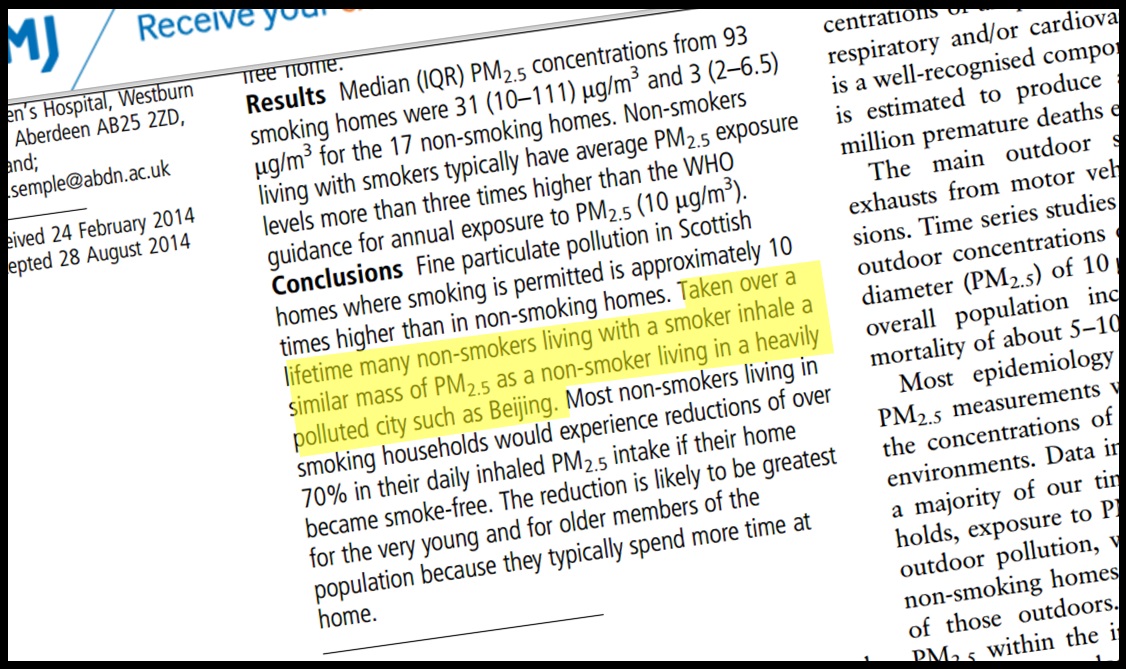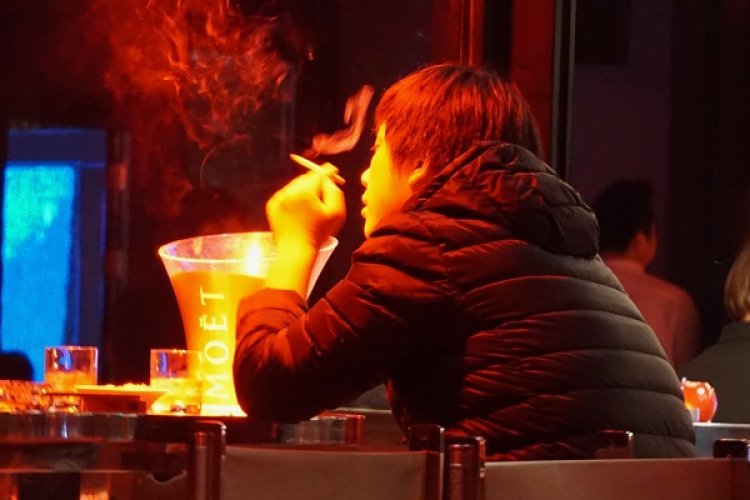Research: Second-Hand Smoke is as Bad as Beijing
Ah yes, everyone loves to be the basis of comparison, and our fair city of Beijing is no different. "With a storied history as long as Beijing's..." "As magnificent as Beijing's Forbidden City" ... However, that's not what people are saying these days: most of the time it seems Beijing comes up only when people want a measuring stick (and again) for bad air.
The latest shot across the bow is from Scottish scientists in their research paper about the effects of second-hand smoke, which was published this week in the journal Tobacco Control. Their conclusion states:
"Taken over a lifetime many non-smokers living with a smoker inhale a similar mass of PM2.5 as a non-smoker living in a heavily polluted city such as Beijing."
It's not nice to the the poster boy for bad air, but that's us, and we might as well accept it. Read the gory details if you wish in Tobacco Control here, or let us give you a couple of takeaways:
Being indoors doesn't help much: "Data indicate that we tend to spend a majority of our time indoors. In most households, indoor levels of PM2.5 in non-smoking homes typically being about 60–70 percent of those outdoors." Takeaway: get an air filter for your home.
Think of the kids and the old folks: "Unsurprisingly, young preschool children and elderly housebound adults receive the highest proportion of their PM2.5 intake at home, with a 2-year-old child living in a smoking home receiving as much as 91 percent of all of the PM2.5 they breathe in a typical day within their home environment. For this child, improvements in outdoor air quality will have negligible impact on their PM2.5 intake, while [changes in household] will clearly produce a step change in the mass of PM2.5 they inhale."
Small quantities can make a big difference: "The additional mass of PM2.5 inhaled by a non-smoker who lives with a smoker is about 5g over a lifetime; yet the epidemiological evidence suggests that this small mass increase has significant implications for health."
If these results worry you then it might be best to look into some of our previous posts regarding the best masks to keep you safe.
Image: Tobacco Control







